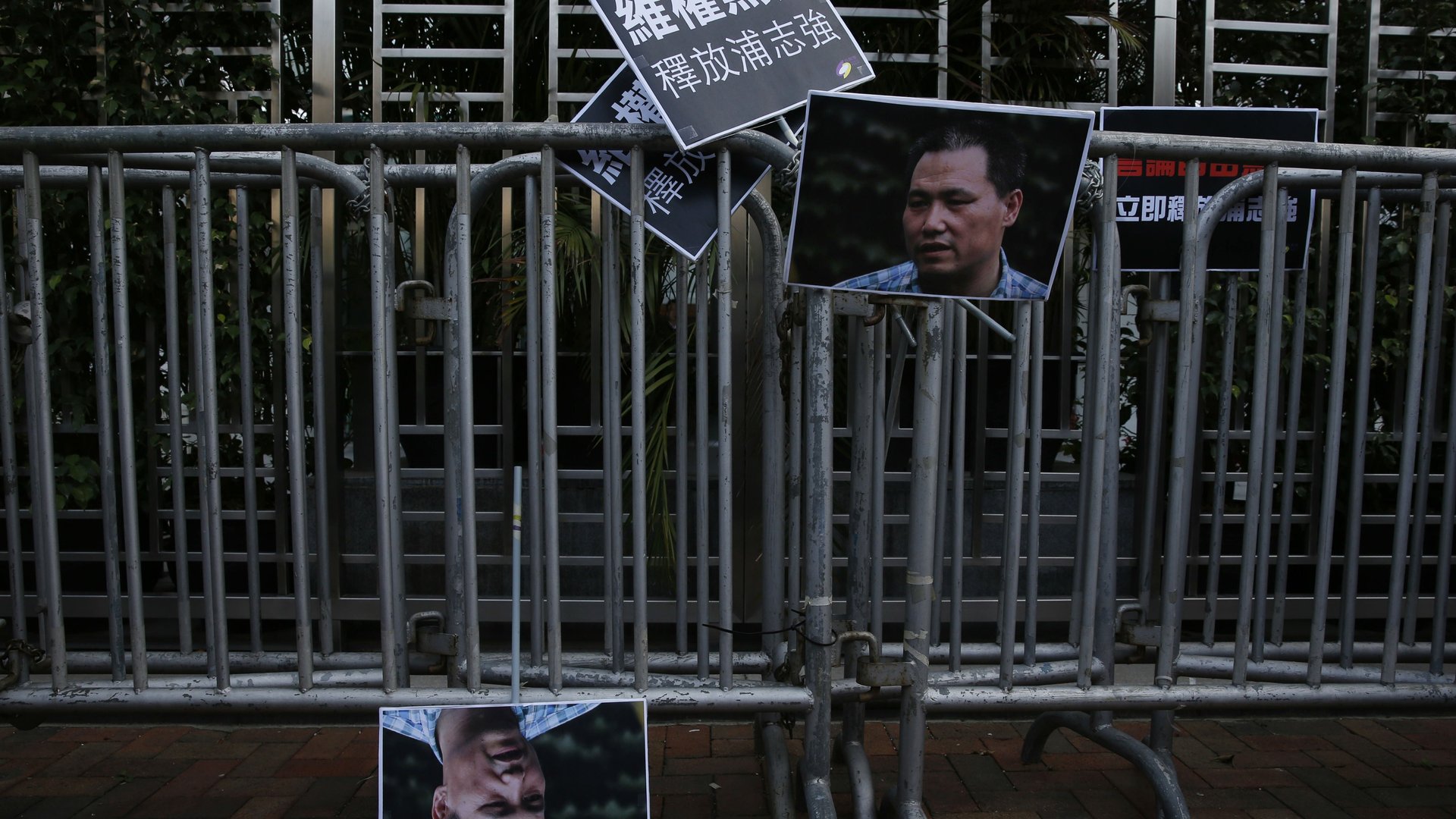Chinese human rights lawyer Pu Zhiqiang avoided jail for now—and won’t appeal
Pu Zhiqiang, a prominent Chinese human rights lawyer, was handed a three-year suspended jail sentence on Tuesday (Dec. 22) morning, accorded to Chinese state broadcaster CCTV (link in Chinese).


Pu Zhiqiang, a prominent Chinese human rights lawyer, was handed a three-year suspended jail sentence on Tuesday (Dec. 22) morning, accorded to Chinese state broadcaster CCTV (link in Chinese).
The human rights champion will not appeal his judgement, his lawyer, Mo Shaoping, told Quartz, adding: “As Pu’s lawyer I don’t recognize the verdict.”
Pu was found guilty of “inciting ethnic hatred,” and “creating a disturbance,” but the decision not to send the high-profile critic directly to jail has come as a surprise.
The one-time defendant of artist Ai Weiwei was detained last May after attending a seminar on the 1989 Tiananmen Square protests, and was originally charged with four separate offenses. But two of these were dropped before the start of last week’s trial, and the evidence used against Pu was restricted to just seven of his messages on Weibo, China’s Twitter-like microblogging site.
Pu had pleaded not guilty to both charges, which carried a maximum of eight years in jail, and had asked the court to give a “verdict that stands the test of history” at the closed trial last week, Mo told Quartz at the time. The lenient sentencing might suggest the government wants to avoid criticism for being too harsh, given the high-profile nature of the case.
Once a student activist in the 1989 Tiananmen Square protest, Pu is best known for advocating for the abolition of China’s “reeducation through labor” system by representing detainees in high-profile cases. Pu also worked with Ai Weiwei in a 2012 tax evasion case that was criticized as politically motivated.
Rights groups and activists condemned the charges against Pu as a latest example of China’s deepening crackdown on freedom of speech and opponents of the Communist Party. Speaking just last week at China’s World Internet Conference, president Xi Jinping paid lip service to calls for a free internet; his comments were intertwined with demands for “order.”